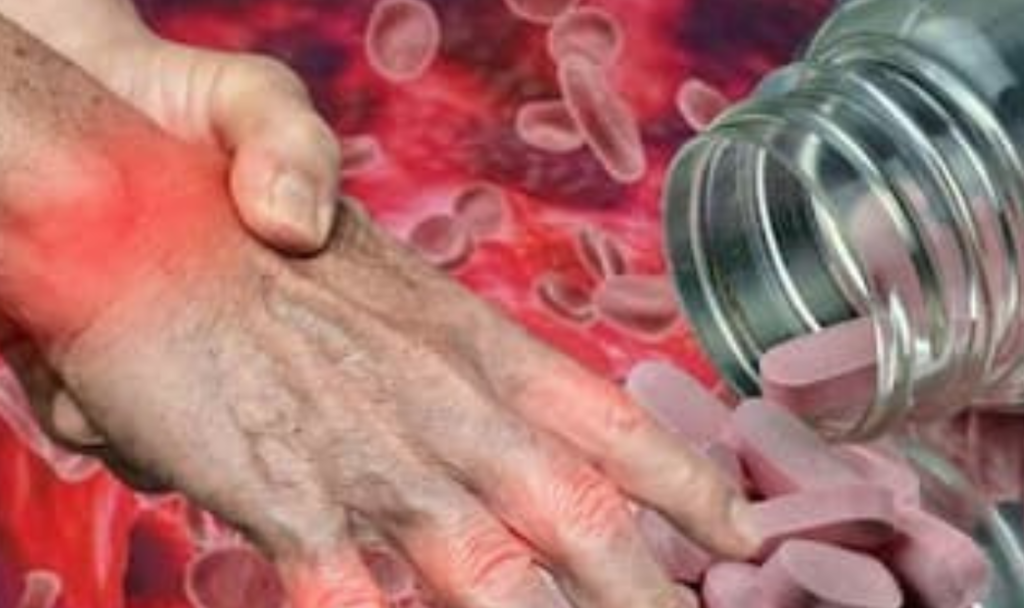Vitamin B12, a crucial nutrient for maintaining overall health, often goes unnoticed until its deficiency wreaks havoc on the body. Found naturally in animal products, Vitamin B12 is vital for red blood cell formation, neurological function, and DNA synthesis. However, a lack of this essential vitamin can lead to significant health issues, and the body starts giving warning signs well before a serious deficiency sets in. Here are ten signs your body might display if you are running low on Vitamin B12.
1. Fatigue and Weakness
One of the earliest and most common signs of Vitamin B12 deficiency is persistent fatigue. This isn’t the kind of tiredness that goes away with a good night’s sleep; it’s a debilitating exhaustion that makes even simple daily tasks seem insurmountable. This occurs because Vitamin B12 plays a critical role in red blood cell production, which transports oxygen throughout the body. Without enough B12, your body struggles to produce adequate red blood cells, leading to anemia and resulting fatigue.
2. Pale or Jaundiced Skin
If your skin starts to look unusually pale or has a slight yellow tint, it could be due to a lack of Vitamin B12. This happens because the deficiency impairs red blood cell production, causing a type of anemia known as megaloblastic anemia. The resulting large, fragile red blood cells break down easily, releasing bilirubin – a substance that gives the skin a yellowish hue.
3. Shortness of Breath and Dizziness
Feeling short of breath or dizzy, especially during physical activity, can also signal a Vitamin B12 deficiency. These symptoms stem from anemia caused by a lack of B12, as the body’s tissues and organs aren’t receiving enough oxygen. If you notice these symptoms, especially if they’re new or worsening, it’s important to get your Vitamin B12 levels checked.
4. Numbness and Tingling
Vitamin B12 is crucial for maintaining the health of your nervous system. A deficiency can damage the protective myelin sheath that surrounds and protects nerves. This can lead to neurological symptoms such as numbness and tingling in the hands and feet, known medically as paresthesia. If left untreated, this nerve damage can become permanent.
5. Balance Problems
Alongside numbness and tingling, balance problems are another neurological symptom of B12 deficiency. The same damage to the nervous system that causes numbness can also affect your ability to walk and move properly, making you more prone to falling. This is particularly concerning for older adults, as falls can lead to serious injuries.
6. Cognitive Impairments
Cognitive functions such as memory, thinking, and reasoning can be adversely affected by a lack of Vitamin B12. Some people with a deficiency may experience symptoms that mimic dementia, such as memory loss, confusion, and difficulty concentrating. Because these symptoms overlap with other conditions, they can be easily overlooked or misdiagnosed.
7. Mood Changes
Depression, anxiety, and mood swings can also be linked to low Vitamin B12 levels. This vitamin is essential for synthesizing neurotransmitters that regulate mood, such as serotonin and dopamine. A deficiency can disrupt this process, leading to significant changes in mood and emotional well-being.
8. Glossitis and Mouth Ulcers
Glossitis, an inflammation of the tongue, can occur due to Vitamin B12 deficiency. Symptoms include a swollen, red, and painful tongue, and it may also appear smooth due to the loss of papillae (small bumps on the tongue). Mouth ulcers, or canker sores, can also develop, causing further discomfort and pain when eating or talking.
9. Vision Problems
In severe cases, Vitamin B12 deficiency can affect the optic nerve, which can lead to vision problems. This condition, known as optic neuropathy, can cause blurred or disturbed vision. Early detection and treatment of B12 deficiency can often reverse these visual disturbances, but if left untreated, the damage may become permanent.
10. Heart Palpitations
Heart palpitations, or the feeling that your heart is racing or pounding, can be a symptom of anemia caused by Vitamin B12 deficiency. This happens because your heart has to work harder to pump oxygen-rich blood throughout your body when there aren’t enough red blood cells to carry oxygen efficiently. Persistent palpitations, especially when accompanied by other symptoms of B12 deficiency, warrant medical attention.
Risk Factors for Vitamin B12 Deficiency
Certain groups of people are at higher risk for Vitamin B12 deficiency. Vegetarians and vegans, for example, may not get enough B12 from their diet since it’s primarily found in animal products. Older adults often have decreased stomach acid production, which can impair B12 absorption. People with gastrointestinal disorders like Crohn’s disease or celiac disease, or those who have undergone gastrointestinal surgeries, may also struggle with absorption. Lastly, certain medications, such as proton pump inhibitors and metformin, can interfere with B12 absorption.
Diagnosis and Treatment
If you suspect you have a Vitamin B12 deficiency, it’s important to seek medical advice. Diagnosis is typically made through blood tests measuring B12 levels. Treatment often involves dietary changes, oral supplements, or in severe cases, B12 injections.
Prevention
Preventing Vitamin B12 deficiency is generally straightforward with a balanced diet that includes sufficient animal products, such as meat, fish, dairy, and eggs. For those who cannot get enough B12 through diet alone, fortified foods and supplements can help maintain adequate levels. Regular monitoring and medical check-ups can also help catch a deficiency early before it causes significant health issues.



